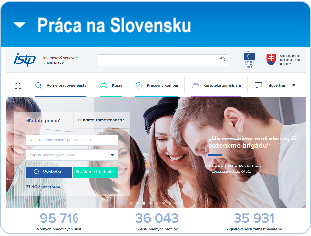Slovak education
Slovak education in general
Most schools, especially universities, are owned by the state, though since the 1990s there are also church-owned and private schools.
Slovakia has 10 years of compulsory education.
Students go to school five days a week, from Monday until Friday. Saturdays as school days were canceled before the 1980s. Summer break is from the 1st of July until the end of August (at universities also in June), a week around Christmas and Easter, in spring, and on official holidays.
A school year consists of two semesters. The first one ends at the end of January in all schools, the second one before the beginning of the summer holidays (see above). Primary and secondary school students usually have around 6 classes a day (less at the beginning of the education, more later). Classes last for 45 minutes, and there (several short ones and one longer one – the so-called "big break" (or by the students often just "big one")). The state financed education and all textbooks and instructional material below the university level are free (returned at the end of the semester) – in most cases at least. However, there are also private schools which are paid.
Students at standard schools receive marks in almost all subjects. The marks go from 1 (best) to 5 (worst), and may include unofficial intermediary marks such as to assess a single project, test, etc. but never on student's final reports). Compared to western European countries, there is an intrinsic "tradition" of teachers granting students rather more marks at the "good" end of the scale, i.e. more 1s, 2s and 3s than they would receive in western Europe, for example. Students below the university level receive school reports (lists of final marks) at the end of each semester.
All state-run educational institutions have suffered from a lack of funding since the fall of communism, i.e. from the early 1990s onward. School fees for university-level schools have been prepared for years, but the parliament has been unable to pass legislation requiring them due to strong citizen opposition. Many state-financed schools of higher education finance themselves by means of various semi-legal "extraordinary" and "auxiliary" fees, etc. Corruption is a widespread problem in academic circles (i.e. paying for term exams, entrance tests, etc.).
Despite the current lack of money, primary and secondary education is at a quite high level compared to many countries of the world. A major deficiency is insufficient promotion of independent thinking and student initiative, a complete absence of creative learning, unreformed and outdated teaching material, methods and syllabi inherited from the former communist educational system, and relatively low remuneration of teachers, leading to a decrease of the number of qualified (and of well qualified) teachers especially below the university level (see the statistics section for some pay figures). University-level schools, unable to provide sufficient pay to get real experts and motivated teachers, are rather mediocre compared to other countries, usually promote pure swotting and use outdated texts and other material. Some reforms of all educational levels, including the introduction of school fees for universities, are said to be in preparation and could be carried out after the next paliamentary elections (to be held 2005). Nonetheless, Slovakia has thus far managed to avoid the excessive brain-drain that has plagued most post-Soviet states.
Source: www.wikipedia.org
More info
Quick navigation
Slovaks on the map
Slovakia 2011

Let's talk
Exchange rates
Most read - SK Forum
| 24209x | Chcete lietať KE -… |
|---|---|
| 18659x | CESTA DOMOV (krizova) |
| 16039x | Slovaks in London wanted… |
| 11844x | Free Intercultural Communication… |
| 11315x | Cesta z UK na SR tento… |












